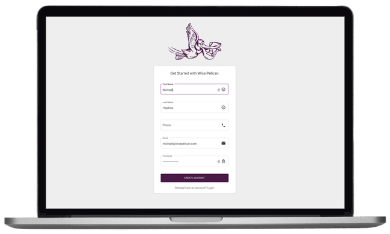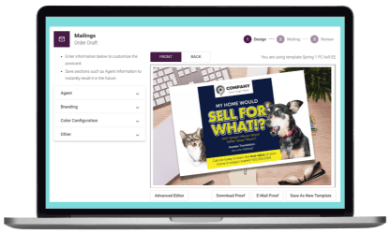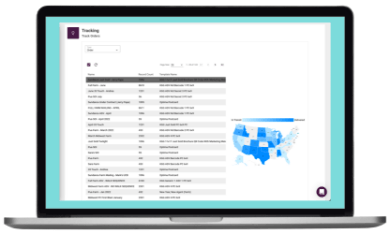We have included our YouTube video if you would prefer to watch a video on Facebook ads for real estate and how it can help with lead generation and brand recognition.
Facebook Ads for real estate have emerged as an indispensable tool for agents looking to expand their horizons, generate leads, and establish a formidable brand presence within their local markets.
With a staggering 2.8 billion monthly active users, Facebook offers an unrivaled platform for connecting with potential buyers and sellers. This article will dive into the objectives of utilizing Facebook Ads for real estate to help with lead generation and brand recognition.

Targeting Your Existing Audiences for Facebook Real Estate Ads
Before diving into the intricacies of Facebook Ads for real estate, it’s crucial to grasp the foundational aspects of audience targeting. There are two primary audience types: website traffic and your customer list.
Website Traffic
This category includes individuals who have previously visited your real estate website. Facebook allows you to set up retargeting audiences for up to 180 days, making it an ideal choice for most agents seeking to maximize their reach.
To make the most of website traffic, the first step involves setting up a Facebook pixel and embedding it on your website. Use a lead generation tool like Real Geeks or BoomTown to ensure seamless data transmission to Facebook to track new leads.
Here’s a more detailed breakdown of how you can make the most of website traffic using Facebook:

Set Up a Facebook Pixel
The first and most crucial step in utilizing your website traffic on Facebook is to set up a Facebook pixel and embed it on your real estate website.
A Facebook pixel is a piece of code provided by Facebook that you place on your website. It tracks user interactions and gathers data on visitors navigating your site. This information is invaluable for creating retargeting campaigns and understanding your audience’s behavior.
This tracking tool records user interactions with your website and facilitates the creation of retargeting audiences based on this data. If you employ a lead generation tool, verifying its integration is imperative to ensure seamless transmission of lead information back to Facebook.
Configuring your Facebook pixel is indeed a pivotal step in maximizing the effectiveness of Facebook Ads for real estate marketing.
The Facebook pixel is a versatile and indispensable tracking tool that helps you gather valuable data about user interactions on your real estate website. Here’s a more detailed explanation of its significance and the importance of verifying integration with lead generation tools:
The Role of the Facebook Pixel: The Facebook pixel is a small piece of code provided by Facebook that you place on your real estate website. Its primary function is to track and record user interactions and events on your site. These events can include page views, property searches, and lead form submissions. The pixel collects this data discreetly and sends it back to Facebook’s analytics platform.
Data Collection and Insights: Once the Facebook pixel is installed and configured correctly, it collects data on how visitors engage with your website. This data is invaluable for real estate agents because it provides insights into user behavior, preferences, and the effectiveness of your website in attracting and converting potential clients.
Retargeting Opportunities: One of the most powerful features of the Facebook pixel is its ability to create custom audiences based on the data it collects.
For instance, you can create a custom audience of users who viewed specific property listings or those who visited your contact page but didn’t submit a lead form. These custom audiences are highly valuable for retargeting campaigns because they allow you to tailor your ads to specific groups of potential clients who have shown interest in your real estate services.
Lead Generation Tool Integration: If you use lead generation tools to collect leads from your website, it’s essential to make sure they smoothly work together with the Facebook pixel. This integration ensures that the data collected by these tools is transmitted efficiently back to Facebook. This is crucial because it helps you track new leads and their interactions with your website, ensuring that your retargeting efforts are current.
Real-Time Engagement: Integration with lead generation tools enables real-time engagement with potential clients. When a user submits a lead form on your website, the Facebook pixel can send this information to Facebook immediately. This allows you to set up automated responses, such as sending a personalized follow-up message or showing relevant property listings to the lead on Facebook.
A/B Testing and Optimization: With the Facebook pixel in place, you can also conduct A/B testing and optimization of your ad campaigns. You can track the performance of different ad creatives, ad copy, and targeting options to determine what resonates best with your audience. This data-driven approach helps you refine your marketing strategy for better results.
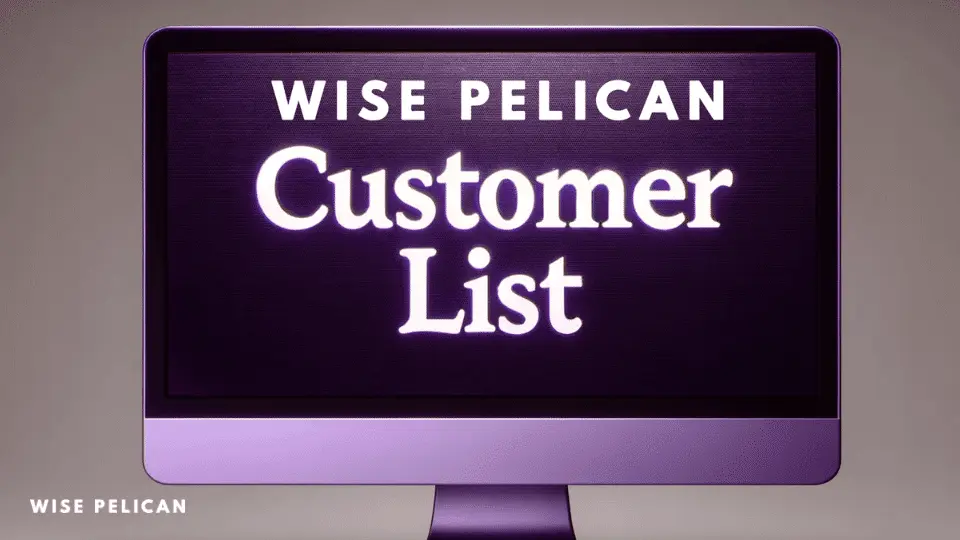
Facebook Ads for Real Estate: Using Your Customer List
Facebook allows users to create custom audiences by uploading a customer list, typically comprising contact information for potential leads, past clients, or other relevant individuals.
A customer list is a powerful resource for businesses and marketers looking to connect with their existing customer base, nurture leads, and drive repeat business. Facebook provides a valuable feature that allows you to leverage your customer list by creating custom audiences based on this data.
Here’s a more detailed explanation of how this process works:
Customer List Definition: A customer list is essentially a compilation of contact information, often including email addresses and phone numbers of individuals who have interacted with your business in some way.
These individuals can be past clients, potential leads, subscribers, or anyone who has shared their contact information with you through various touchpoints, such as website sign-ups, purchases, or inquiries.
Custom Audiences on Facebook: Facebook offers the capability to create custom audiences using the contact information in your customer list. This means you can specifically target people on Facebook who are already familiar with your brand or have shown interest in your services. Custom audiences are highly effective for re-engaging with your existing audience and maintaining a strong online presence.
Business Account and Ads Manager Account: To use the customer list feature on Facebook, you need to have both a Business Account and an Ads Manager Account within Facebook.
A Business Account is a free account that allows you to manage and access Facebook’s advertising tools. The Ads Manager Account is where you create and manage your ad campaigns, including the ones targeted at custom audiences.
Uploading Your Customer List: Once you set up your Business Account and Ads Manager Account, you can upload your customer list to Facebook. This process typically involves creating a custom audience within the Ads Manager and selecting the option to upload a file or paste the contact information directly. Facebook will then securely match the provided contact information with user profiles on the platform.
Data Privacy and Compliance: When using a customer list on Facebook, it’s crucial to ensure that you have the necessary permissions and comply with data privacy regulations. Always obtain consent from individuals before adding their information to your list, and be transparent about how you plan to use their data.
Customized Marketing Campaigns: You can craft highly targeted marketing campaigns after creating your custom audience from the customer list.
Lookalike Audiences: An additional benefit of using your customer list on Facebook is the ability to create Lookalike Audiences. Facebook can analyze the characteristics and behaviors of your existing custom audience and find similar users on the platform. This expands your reach to potential new customers who share similarities with your current customer base.

Creating Website Traffic Audiences for Your Real Estate Facebook Ads
Once your Facebook pixel is in place and diligently capturing website traffic data, the next logical step is to create audiences for retargeting. The audience duration can extend up to 180 days, a duration often favored by real estate agents to ensure comprehensive audience reach. Label this audience as “Website Traffic.”
Creating audiences for retargeting is a critical and logical next step after successfully setting up your Facebook pixel to capture website traffic data.
These retargeting audiences allow you to re-engage with visitors to your real estate website, reminding them of your brand, services, and property listings. In the context of real estate marketing, using a 180-day duration for your retargeting audience, labeled as “Website Traffic,” can be a particularly effective strategy for several reasons:
Extended Engagement Period: The 180-day duration for your “Website Traffic” audience is significantly longer than shorter durations, such as 30 or 60 days. Property searches and decision-making processes can be lengthy in the real estate industry. Potential buyers or sellers may take their time before making a decision. Having a longer audience duration ensures that you remain on the radar of these individuals throughout their entire journey.
Maximizing Audience Reach: Real estate transactions often involve significant investments, and potential clients may spend months researching, considering options, and seeking advice. Maintaining a 180-day audience maximizes your reach and the number of opportunities to engage with potential clients during their decision-making process. This comprehensive coverage is particularly important in a competitive market where buyers and sellers may explore multiple options over time.
Consistent Brand Presence: When using Facebook ads for real estate, consistency is key. Having a 180-day “Website Traffic” audience means that your brand, property listings, and services are consistently shown to individuals who have already expressed interest in your website. This helps keep your brand on potential customer’s minds and reinforces your credibility as a trusted real estate agent.
Behavioral Insights: Over a 180-day period, you can gather valuable behavioral insights about your audience. You can track how their interests and preferences evolve, which properties they repeatedly view, and their specific actions on your website. This data lets you fine-tune your retargeting campaigns, ensuring that your content and offers are highly relevant to their evolving needs.
Customized Messaging: With a 180-day audience, you can customize your messaging based on the stage of the buyer or seller’s journey. You can start with informative content to educate them about the market and the process, then gradually transition to more specific property listings and calls to action as they move closer to making a decision.
Multi-Touchpoint Marketing: Real estate decisions often involve multiple touchpoints and interactions. Having a 180-day audience allows you to implement multi-touchpoint marketing strategies to reach potential clients through a combination of Facebook ads, email campaigns, and other social media platforms. This coordinated approach increases the chances of conversion.
Competitive Advantage: Maintaining a 180-day “Website Traffic” audience in a competitive real estate market can give you a significant advantage over competitors who may only use shorter durations. Your persistence and consistent presence can make a difference in winning over clients who are taking their time to decide.
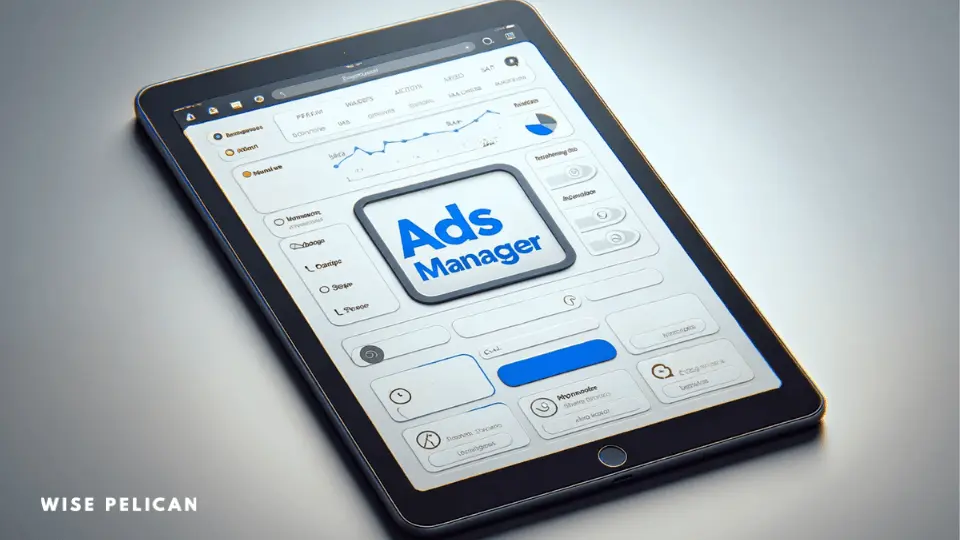
Crafting Real Estate Facebook Ad Campaigns
With your website traffic audience in place, the time has come to craft ad campaigns precisely tailored to this audience. You have two primary options for executing this, Ads Manager and Facebook Boosts.
Ads Manager
Within Facebook’s Ads Manager, you can design and launch ad campaigns finely tuned to your website traffic audience.
Facebook’s Ads Manager is a powerful and versatile platform allowing real estate agents to meticulously design and launch highly targeted ad campaigns tailored to their website traffic audience. Here’s an in-depth look at how Ads Manager empowers you to optimize your advertising efforts:
Audience Segmentation: One of the key strengths of Ads Manager is its ability to segment your audience with precision. When targeting your website traffic audience, you can create custom audiences based on specific user behaviors, such as page views, property searches, and lead form submissions. This granularity allows you to tailor your ad content and messaging to match the interests and actions of different segments of your website visitors.
Ad Creative Customization: Ads Manager offers a wide range of ad formats, including image and video ads, carousel ads, and slideshow ads. You can customize the creative elements of your ads, including images, headlines, ad copy, and call-to-action buttons. This customization enables you to create visually compelling and engaging ads that resonate with your audience.
Ad Scheduling: Ads Manager allows you to schedule your ads to run at specific times and days. This feature is valuable for reaching your website traffic audience when they are most likely to be active and engaged. For real estate agents, it can be advantageous to schedule ads during peak home-searching times, ensuring that your listings are seen by potential clients at the right moments.
Budget Control: You have full control over your advertising budget within Ads Manager. You can set daily or lifetime budgets based on your financial constraints and goals. You can also allocate your budget strategically across different ad sets or campaigns, optimizing your spending for maximum impact.
Ad Placement Options: Ads Manager provides various ad placement options, including Facebook, Instagram, Audience Network, and Messenger. You can choose the platforms that best align with your audience’s behavior and preferences. For example, Instagram can be particularly effective for showcasing visually appealing property listings, while Facebook may be ideal for broader brand awareness campaigns.
Advanced Targeting Options: Facebook’s Ads Manager offers advanced targeting capabilities beyond just website traffic. To further narrow your audience, you can layer additional targeting parameters, such as demographics, interests, behaviors, and location. This allows you to reach potential clients who share specific characteristics or are more likely to engage with your ads.
Ad Tracking and Analytics: Ads Manager provides powerful tracking and analytics tools to monitor your campaigns’ performance in real time. You can track key metrics such as click-through rates, conversion rates, cost per conversion, and return on ad spend (ROAS). This data empowers you to make data-driven decisions and optimize your campaigns for better results.
A/B Testing: A/B testing, often referred to as split testing, is a crucial feature in Ads Manager. It allows you to create multiple ad variations and test different elements, such as headlines, ad copy, images, and audience segments, to determine which combinations perform best. This approach helps you refine your ad strategy over time.
Dynamic Ads: For real estate agents with extensive property listings, dynamic ads are a valuable feature. Ads Manager can automatically generate ads based on your property catalog, ensuring that your listings are always up-to-date and relevant to your website traffic audience.
Remarketing Strategies: Ads Manager is the ideal platform for implementing remarketing strategies, where you can retarget website visitors with personalized ads based on their previous interactions. This capability is particularly effective for nurturing leads and encouraging users to take the next step in their real estate journey.

Facebook Boost
When using Facebook ads for real estate, consider utilizing the Facebook Boost feature for your posts for a more straightforward approach.
Boosted posts are simple to set up and can be directed toward either your website retargeting audience or your Customer List/custom audience within Facebook.
The “Boost” feature on Facebook is a user-friendly and straightforward tool that allows real estate agents to promote their posts to a wider audience. It’s an excellent option for those who prefer a simpler approach to advertising on the platform.
Here’s an in-depth exploration of how Facebook Boost works and its advantages:
Boosting Posts: Boosting a post is essentially a way to turn one of your organic Facebook posts into a paid advertisement. Instead of creating a separate ad from scratch in the Ads Manager, you can boost a post directly from your Facebook Page. This streamlines the process and is especially convenient for real estate agents who may not have extensive experience with Facebook advertising.
Ease of Setup: The process of boosting a post is designed to be user-friendly. You can do it in just a few clicks. Simply navigate to the post you want to boost on your Facebook Page, click the “Boost Post” button, and follow the prompts. Facebook will guide you through selecting your target audience, budget, and duration for the boosted post.
Targeting Options: While boosting a post is simpler than creating a full-fledged ad campaign in Ads Manager, it still offers some targeting options. You can choose to direct your boosted post toward specific audiences, including your website retargeting audience or custom audiences like your customer list. This allows you to reach individuals who have already interacted with your website or are on your contact list.
Website Retargeting Audience: When you select your website retargeting audience for boosting a post, you’re essentially re-engaging with individuals who have previously visited your real estate website. This can be highly effective for keeping your brand top-of-mind and encouraging them to return to your site or take another desired action, such as contacting you for real estate services.
Customer List and Custom Audiences: Boosting a post to your customer list or custom audiences enables you to target individuals who are already familiar with your brand or have expressed interest in your real estate services. This audience is often more receptive to your content and offers, making it a valuable group to engage with.
Budget Flexibility: You have control over your budget for a boosted post. Depending on your advertising goals and financial constraints, you can set a daily or lifetime budget. This flexibility allows you to tailor your spending to your specific needs.
Performance Insights: Facebook provides basic performance insights for boosted posts, including reach, engagement, and click-through rates. While not as detailed as the analytics in Ads Manager, these metrics give you a sense of how your boosted post performs and if it resonates with your target audience.
Content Promotion: Boosted posts are a convenient way to promote various types of content, including property listings, blog articles, video tours, client testimonials, and community events. This versatility allows you to showcase different aspects of your real estate business to your audience.
Quick Results: Boosted posts can generate relatively quick results since they start reaching your target audience shortly after you set up the campaign. This can be beneficial for time-sensitive promotions or announcements.
Cost-Effective Option: For real estate agents with limited advertising budgets, boosting posts can be a cost-effective way to extend your reach and engage with your website traffic or custom audiences without the complexity of full-scale ad campaigns.
Budget Considerations: Facebook Ads for Real Estate
Effective budget allocation is pivotal when implementing Facebook Ads for real estate. While campaigns can be initiated with as little as $5 per day, it is advisable not to dip below this threshold.
Typically, retargeting lists yield costs ranging from $15 to $30 per 1,000 impressions. Assuming a $20 CPM (Cost Per Mille or Cost Per Thousand Impressions), a $5 daily budget would result in approximately 250,000 impressions daily.
Effective budget allocation is critical to any successful real estate Facebook Ads strategy. How you allocate your budget determines your ad campaigns’ reach, frequency, and impact.
Let’s take a closer look at the importance of budget allocation and how it can impact your campaign results:
Budget Threshold: The minimum budget to initiate a Facebook Ads campaign can be as low as $5 per day. However, it’s advisable not to dip below this threshold for several reasons. With a $5 daily budget, your ad campaign will have limited reach and may struggle to gain traction. A higher budget allows for more impressions and engagement, increasing your campaign’s effectiveness.
Retargeting Costs: Retargeting campaigns often yield costs ranging from $15 to $30 per 1,000 impressions (CPM). The CPM represents the cost you pay for every 1,000 times your ad is displayed to users. In the real estate industry, where competition can be fierce, CPM rates tend to be relatively higher due to the valuable nature of the leads.
CPM Calculation: Let’s assume a $20 CPM for your retargeting campaign. This means you pay $20 for every 1,000 times your ad is shown to your retargeting audience. With a $5 daily budget, you can calculate the expected daily impressions using the formula: Daily Impressions = Daily Budget / CPM. In this case, $5 / $20 = 0.25, which results in 250 impressions per day.
Impression Volume: A daily budget of $5 generating approximately 250 impressions per day is quite limited, especially in the context of real estate marketing, where the audience is competitive and the customer lifetime value can be high. It’s essential to consider whether this level of exposure aligns with your campaign goals and the scale of your real estate business.
Frequency and Audience Reach: With a limited budget, your ads may reach the same users repeatedly (high frequency) rather than expanding your reach to a broader audience. This can lead to ad fatigue, where users become desensitized to your message. To maintain a fresh and engaging ad experience, having a budget that allows for a more extensive audience reach is generally recommended.
Scaling Your Campaign: Scaling your Facebook Ads campaign to reach a larger audience or target multiple segments requires a more substantial budget. Real estate agents aiming for significant lead generation and brand exposure often allocate higher budgets to accommodate these objectives effectively.
Testing and Optimization: Adequate budget allocation is crucial for testing different ad creatives, audiences, and strategies. Testing allows you to refine your campaigns and identify what works best. A limited budget can hinder your ability to conduct meaningful tests and optimize your ad performance.
Competitive Landscape: The real estate industry’s competitiveness on Facebook can drive up advertising costs. It’s essential to be aware of the market dynamics and allocate a budget that allows you to compete effectively for the attention of your target audience.
Ad Quality: While budget allocation is essential, it should be complemented by high-quality ad creatives and effective targeting. Well-crafted ads with compelling visuals and messaging can maximize your budget by increasing engagement and conversions.

Content for Your Real Estate Facebook Ads
The content featured in your Facebook Ads is pivotal in achieving your objectives. At the lower end of the budget spectrum, where daily expenditure is $5, the primary focus should be on brand recognition. Depending on your specific Here are content ideas to consider for all real estate niches:
- Property Images: Showcase high-quality images of listings to captivate your audience.
- Video Walkthroughs: Engage potential buyers with video walkthroughs of properties.
- Selfie Videos: Create brief videos discussing listings or offering valuable real estate insights. Selfie videos are an excellent way to establish a personal connection with your audience. You can create brief videos where you introduce yourself, discuss featured listings, or offer valuable real estate insights.
- Just Listed and Just Sold Postcards: Sharing images of “Just Listed” and “Just Sold” postcards effectively highlights your recent successes and showcases your expertise in the real estate market. These postcards serve as social proof of your track record and can build trust with potential clients. They demonstrate that you are actively involved in real estate transactions.
- High-Quality Visuals: Showcase high-quality images of your property listings. High-resolution photos highlighting the key features and aesthetics of the properties are essential for grabbing your audience’s attention.
- Variety: Rotate your property images to keep your content fresh. Feature different listings regularly to appeal to a broader range of potential buyers and renters.
- Carousel Ads: Utilize Facebook’s carousel ad format to display multiple property images in a single ad. This allows you to showcase a variety of listings within a single advertisement, increasing the chances of engagement.
- Video Walkthroughs: Create engaging video walkthroughs of your properties. Video is a powerful medium for real estate advertising, allowing potential buyers to understand better the listings’ space, layout, and ambiance.
- Virtual Tours: Consider using 360-degree or virtual reality (VR) tours to immerse viewers in the property. These interactive experiences can be highly engaging and set your listings apart.
- DIY Videos: If you have limited resources, you can create simple DIY video walkthroughs using a smartphone or a camera. The key is to provide viewers with a clear view of the property and its unique selling points.
- Authenticity: Authenticity is key in selfie videos. Speak directly to the camera, be genuine, and share your passion for real estate. Authentic content often resonates well with viewers.
- Live Video: Use Facebook Live to engage with your audience in real time. You can host live property tours and Q&A sessions or share behind-the-scenes glimpses of your work.
- Storytelling: Use the captions or ad copy to tell the story behind each listing. Share these properties’ challenges, successes, and unique aspects to create a compelling narrative.
Additional Tips for Your Real Estate Facebook Ads
Craft compelling ad copy. Keep it short and persuasive to complement your visuals. Highlight key selling points, provide essential details, and include a clear call to action.
Leverage Facebook’s targeting options. Use location, demographics, interests, and behaviors to reach your ideal audience.
Monitor and adjust your ads regularly. Review performance and make changes as needed. Test different content, audiences, and ad formats to optimize your campaigns for better results.
BROWSE WISE PELICAN’S REAL ESTATE POSTCARDS

Focus on Brand Awareness
With a modest budget, the primary goal is to establish brand awareness. Your retargeting audiences, whether derived from website traffic or customer lists, already demonstrate some level of interest in your services. By maintaining a consistent presence, you can nurture brand recognition and trust.
When you’re working with a modest budget for your Facebook advertising campaigns in the real estate industry, it’s crucial to set clear objectives and prioritize your efforts. One of the primary goals in this scenario is to establish brand awareness. This is especially true when targeting retargeting audiences derived from website traffic or customer lists.
Here’s an in-depth exploration of why brand awareness is vital in this context and how maintaining a consistent presence can nurture recognition and trust:
Budget Limitations and Realistic Expectations:
It’s important to set realistic expectations with a modest budget. While direct lead generation and conversions are always desirable, they can be challenging to achieve with limited resources.
Recognizing these limitations, your primary goal becomes creating lasting impressions and building a foundation for future conversions.
Retargeting Audiences’ Potential
Retargeting audiences, whether based on website traffic or customer lists, are already somewhat familiar with your brand. They have either visited your website or engaged with your business in the past. These audiences are more likely to respond positively to your messaging and are prime candidates for nurturing brand awareness.
Consistent Presence
Consistency is key to building brand awareness. Your audience needs to see your brand repeatedly to remember it and develop trust. Maintaining a consistent presence on Facebook reinforces your brand identity and ensures that your business remains top-of-mind when potential clients consider real estate services.
Familiarity and Trust
The real estate industry often involves significant financial transactions and personal decisions. Potential clients are more likely to choose a real estate agent or agency they know and trust.
Consistent brand exposure helps create a sense of familiarity. Individuals who recognize your brand are more likely to perceive you as a reputable and trustworthy option.
Educational Content and Value
Alongside brand exposure, consider providing value to your retargeting audiences. Share educational content about the real estate market, tips for buyers and sellers, and local insights. By offering valuable information, you position yourself as an expert in the field, further enhancing your brand’s credibility and trustworthiness.
Ad Creative and Messaging
Craft your ad creative and messaging with brand awareness in mind. Highlight your unique selling points, mission, and values. Use consistent visuals, logos, and brand colors in your ads to reinforce brand recognition.
Frequency and Impressions
You may not achieve a massive reach with a limited budget, but you can focus on frequency and impressions. Ensure that your ads are displayed to your retargeting audiences with a reasonable frequency to maximize recall.
Monitoring and Optimization
While the primary goal is brand awareness, continue monitoring ad performance. Analyze engagement metrics, such as click-through rates and ad impressions, to gauge the effectiveness of your efforts.
Optimize your campaigns based on the data you collect. Adjust your ad creative, messaging, and targeting as needed to improve results over time.

Simplifying Real Estate Facebook Ads with Wise Pelican
Wise Pelican is a valuable platform that offers real estate professionals a streamlined approach to managing and leveraging their customer data for Facebook advertising campaigns. One of its advanced features is the ability to create Facebook campaigns directly from your customer lists. This feature not only saves time but also maximizes the utilization of your existing data.
Let’s look at how this feature works and its benefits:
Integration with Customer Lists
Wise Pelican integrates seamlessly with your customer data, allowing you to upload and manage lists of contacts, which may include past clients, leads, or other relevant individuals. This integration is essential because it centralizes your data and ensures that it’s readily accessible for your marketing efforts.
CREATE YOUR FREE WISE PELICAN ACCOUNT
Creating Facebook Campaigns
Wise Pelican’s integration with Facebook Ads Manager enables you to create Facebook ad campaigns directly from your customer lists. This feature simplifies the campaign creation process, as you can leverage your existing data to target specific audiences on Facebook.
Streamlined Process
Creating campaigns directly from your customer lists streamlines the entire process. You don’t need to manually export or import data between platforms, reducing the risk of data errors and saving you time. The platform automates matching contacts from your lists to Facebook user profiles, ensuring that your ads are delivered to the right audience.
Custom Audience Targeting
Wise Pelican allows you to use your customer lists to create custom audiences on Facebook. These custom audiences are powerful because they consist of individuals who are already familiar with your brand or have engaged with your real estate services in some way. Custom audiences are highly effective for retargeting and delivering tailored messages to specific segments of your list.
Effective Implementation Guidance
While the feature may be advanced, Wise Pelican provides comprehensive help resources and guidance on its effective implementation. These resources can include tutorials, step-by-step instructions, best practices, and tips for optimizing your campaigns created from Customer Lists.
Compliance and Data Security
It’s essential to ensure that the use of customer data, especially for advertising purposes, complies with relevant data privacy regulations such as GDPR or CCPA. Wise Pelican should provide tools or features to help you manage user consent and adhere to legal requirements.
Customized Messaging
With campaigns created from Customer Lists, you can craft personalized and highly relevant messaging for your audience. Tailor your ad content to align with the interests and preferences of specific customer segments.
Campaign Performance Tracking
After launching your campaigns, it’s crucial to monitor their performance. Wise Pelican should provide insights and analytics to help you assess the effectiveness of your Facebook campaigns and make data-driven adjustments as needed.
Wise Pelican’s feature that enables the creation of Facebook campaigns directly from Customer Lists offers significant advantages for real estate professionals. It streamlines the process, maximizes the utilization of your existing data, and facilitates targeted marketing to an audience that has already shown interest in your services.
With the support of Wise Pelican’s resources, you can harness the full potential of this feature to enhance your real estate marketing efforts on Facebook while maintaining compliance with data privacy regulations.
If you are ready to dominate Facebook ads, Wise Pelican is here to help you export your mailing lists, set up Facebook Manage, and begin publishing ads!




